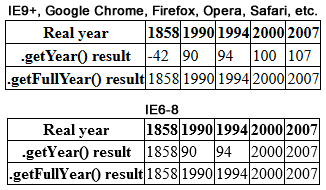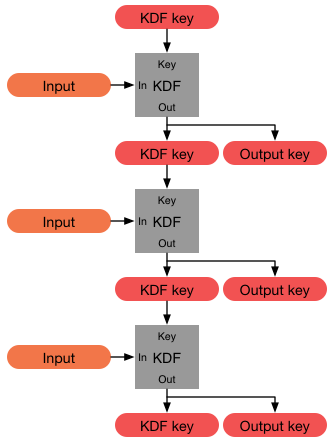|
Harvest Now, Decrypt Later
Harvest now, decrypt later is a surveillance strategy that relies on the acquisition and long-term storage of currently unreadable encrypted data awaiting possible breakthroughs in decryption technology that would render it readable in the future – a hypothetical date referred to as Y2Q (a reference to Y2K) or Q-Day. The most common concern is the prospect of developments in quantum computing which would allow current strong encryption algorithms to be broken at some time in the future, making it possible to decrypt any stored material that had been encrypted using those algorithms. However, the improvement in decryption technology need not be due to a quantum-cryptographic advance; any other form of attack capable of enabling decryption would be sufficient. The existence of this strategy has led to concerns about the need to urgently deploy post-quantum cryptography, even though no practical quantum attacks yet exist, as some data stored now may still remain sensitive even de ... [...More Info...] [...Related Items...] OR: [Wikipedia] [Google] [Baidu] |
Decryption
In cryptography, encryption (more specifically, encoding) is the process of transforming information in a way that, ideally, only authorized parties can decode. This process converts the original representation of the information, known as plaintext, into an alternative form known as ciphertext. Despite its goal, encryption does not itself prevent interference but denies the intelligible content to a would-be interceptor. For technical reasons, an encryption scheme usually uses a pseudo-random encryption key generated by an algorithm. It is possible to decrypt the message without possessing the key but, for a well-designed encryption scheme, considerable computational resources and skills are required. An authorized recipient can easily decrypt the message with the key provided by the originator to recipients but not to unauthorized users. Historically, various forms of encryption have been used to aid in cryptography. Early encryption techniques were often used in military m ... [...More Info...] [...Related Items...] OR: [Wikipedia] [Google] [Baidu] |
Y2K Problem
The term year 2000 problem, or simply Y2K, refers to potential computer errors related to the Time formatting and storage bugs, formatting and storage of calendar data for dates in and after the year 2000. Many Computer program, programs represented four-digit years with only the final two digits, making the year 2000 indistinguishable from 1900. Computer systems' inability to distinguish dates correctly had the potential to bring down worldwide infrastructures for computer-reliant industries. In the years leading up to the turn of the millennium, the public gradually became aware of the "Y2K scare", and individual companies predicted the global damage caused by the bug would require anything between $400 million and $600 billion to rectify. A lack of clarity regarding the potential dangers of the bug led some to stock up on food, water, and firearms, purchase backup generators, and withdraw large sums of money in anticipation of a computer-induced Global catastrophic risk, ap ... [...More Info...] [...Related Items...] OR: [Wikipedia] [Google] [Baidu] |
Quantum Computing
A quantum computer is a computer that exploits quantum mechanical phenomena. On small scales, physical matter exhibits properties of wave-particle duality, both particles and waves, and quantum computing takes advantage of this behavior using specialized hardware. Classical physics cannot explain the operation of these quantum devices, and a scalable quantum computer could perform some calculations Exponential growth, exponentially faster than any modern "classical" computer. Theoretically a large-scale quantum computer could post-quantum cryptography, break some widely used encryption schemes and aid physicists in performing quantum simulator, physical simulations; however, the current state of the art is largely experimental and impractical, with several obstacles to useful applications. The basic unit of information in quantum computing, the qubit (or "quantum bit"), serves the same function as the bit in classical computing. However, unlike a classical bit, which can be in ... [...More Info...] [...Related Items...] OR: [Wikipedia] [Google] [Baidu] |
Strong Encryption
Strong cryptography or cryptographically strong are general terms used to designate the cryptographic algorithms that, when used correctly, provide a very high (usually insurmountable) level of protection against any eavesdropper, including the government agencies. There is no precise definition of the boundary line between the strong cryptography and ( breakable) weak cryptography, as this border constantly shifts due to improvements in hardware and cryptanalysis techniques. These improvements eventually place the capabilities once available only to the NSA within the reach of a skilled individual, so in practice there are only two levels of cryptographic security, "cryptography that will stop your kid sister from reading your files, and cryptography that will stop major governments from reading your files" (Bruce Schneier). The strong cryptography algorithms have high security strength, for practical purposes usually defined as a number of bits in the key. For example, the ... [...More Info...] [...Related Items...] OR: [Wikipedia] [Google] [Baidu] |
European Data Protection Supervisor
The European Data Protection Supervisor (EDPS) is an independent supervisory authority whose primary objective is to monitor and ensure that European institutions and bodies respect the right to privacy and data protection when they process personal data and develop new policies. Wojciech Wiewiórowski has been appointed European Data Protection Supervisor (EDPS) by a joint decision of the European Parliament and the Council. Appointed for a five-year term, he took office on 6 December 2019. Regulation (EU) 2018/1725 describes the duties and powers of the European Data Protection Supervisor (Chapter VI) as well as the institutional independence of the EDPS as a supervisory authority. It also lays down the rules for data protection in the EU institutions. Activities The duties and powers of the EDPS, as well as the institutional independence of the supervisory authority, are set out in the "Data Protection Regulation". In practice the EDPS' activities can be divided into thr ... [...More Info...] [...Related Items...] OR: [Wikipedia] [Google] [Baidu] |
Post-quantum Cryptography
Post-quantum cryptography (PQC), sometimes referred to as quantum-proof, quantum-safe, or quantum-resistant, is the development of cryptographic algorithms (usually public-key algorithms) that are currently thought to be secure against a cryptanalytic attack by a quantum computer. Most widely-used public-key algorithms rely on the difficulty of one of three mathematical problems: the integer factorization problem, the discrete logarithm problem or the elliptic-curve discrete logarithm problem. All of these problems could be easily solved on a sufficiently powerful quantum computer running Shor's algorithm or possibly alternatives. As of 2024, quantum computers lack the processing power to break widely used cryptographic algorithms; however, because of the length of time required for migration to quantum-safe cryptography, cryptographers are already designing new algorithms to prepare for Y2Q or Q-Day, the day when current algorithms will be vulnerable to quantum computin ... [...More Info...] [...Related Items...] OR: [Wikipedia] [Google] [Baidu] |
Cybersecurity And Infrastructure Security Agency
The Cybersecurity and Infrastructure Security Agency (CISA) is a component of the United States Department of Homeland Security (DHS) responsible for cybersecurity and infrastructure protection across all levels of government, coordinating cybersecurity programs with U.S. states, and improving the government's cybersecurity protections against private and nation-state hackers. The term "cyber attack" covers a wide variety of actions ranging from simple probes, to defacing websites, to denial of service, to espionage and destruction. The agency began in 2007 as the DHS National Protection and Programs Directorate. With the Cybersecurity and Infrastructure Security Agency Act of 2018, CISA's footprint grew to include roles protecting the census, managing National Special Security Events, and the U.S. response to the COVID-19 pandemic. It has also been involved in overseeing 5G network security, securing elections, and strengthening the US grid against electromagnetic pulses ... [...More Info...] [...Related Items...] OR: [Wikipedia] [Google] [Baidu] |
Communications Interception (other) , which includes the interception of military communications
{{disambig ...
Communications interception can mean: * Postal interception, the interception of physical mail * Wiretapping, the interception of telegraph, telephone or Internet traffic * Signals intelligence Signals intelligence (SIGINT) is the act and field of intelligence-gathering by interception of ''signals'', whether communications between people (communications intelligence—abbreviated to COMINT) or from electronic signals not directly u ... [...More Info...] [...Related Items...] OR: [Wikipedia] [Google] [Baidu] |
Indiscriminate Monitoring
Indiscriminate monitoring is the mass monitoring of individuals or groups without the careful judgement of wrong-doing. This form of monitoring could be done by government agencies, employers, and retailers. Indiscriminate monitoring uses tools such as email monitoring, telephone tapping, geo-locations, health monitoring to monitor private lives. Organizations that conduct indiscriminate monitoring may also use surveillance technologies to collect large amounts of data that could violate privacy laws or regulations. These practices could impact individuals emotionally, mentally, and globally. The government has also issued various protections to protect against indiscriminate monitoring. Surveillance methods Indiscriminate monitoring could occur through electronic employee monitoring, social networking, targeted advertising, and geological health monitoring. All of these tools are used to monitor individuals without the direct knowledge of the individual. Electronic Employee mo ... [...More Info...] [...Related Items...] OR: [Wikipedia] [Google] [Baidu] |
Mass Surveillance
Mass surveillance is the intricate surveillance of an entire or a substantial fraction of a population in order to monitor that group of citizens. The surveillance is often carried out by Local government, local and federal governments or intelligence agency, governmental organizations, but it may also be carried out by corporations (either on behalf of governments or at their own initiative). Depending on each nation's laws and Judiciary, judicial systems, the legality of and the permission required to engage in mass surveillance varies. It is the single most indicative distinguishing trait of Totalitarianism, totalitarian regimes. It is often distinguished from targeted surveillance. Mass surveillance has often been cited by agencies like the National Security Agency (NSA) as necessary to fight terrorism, prevent crime and social unrest, protect national security, and control the population. At the same time, mass surveillance has equally often been criticized for violating pri ... [...More Info...] [...Related Items...] OR: [Wikipedia] [Google] [Baidu] |
Perfect Forward Secrecy
In cryptography, forward secrecy (FS), also known as perfect forward secrecy (PFS), is a feature of specific key-agreement protocols that gives assurances that session keys will not be compromised even if long-term secrets used in the session key exchange are compromised, limiting damage. For TLS, the long-term secret is typically the private key of the server. Forward secrecy protects past sessions against future compromises of keys or passwords. By generating a unique session key for every session a user initiates, the compromise of a single session key will not affect any data other than that exchanged in the specific session protected by that particular key. This by itself is not sufficient for forward secrecy which additionally requires that a long-term secret compromise does not affect the security of past session keys. Forward secrecy protects data on the transport layer of a network that uses common transport layer security protocols, including OpenSSL, when its long-ter ... [...More Info...] [...Related Items...] OR: [Wikipedia] [Google] [Baidu] |
Cryptography
Cryptography, or cryptology (from "hidden, secret"; and ''graphein'', "to write", or ''-logy, -logia'', "study", respectively), is the practice and study of techniques for secure communication in the presence of Adversary (cryptography), adversarial behavior. More generally, cryptography is about constructing and analyzing Communication protocol, protocols that prevent third parties or the public from reading private messages. Modern cryptography exists at the intersection of the disciplines of mathematics, computer science, information security, electrical engineering, digital signal processing, physics, and others. Core concepts related to information security (confidentiality, data confidentiality, data integrity, authentication, and non-repudiation) are also central to cryptography. Practical applications of cryptography include electronic commerce, Smart card#EMV, chip-based payment cards, digital currencies, password, computer passwords, and military communications. ... [...More Info...] [...Related Items...] OR: [Wikipedia] [Google] [Baidu] |






